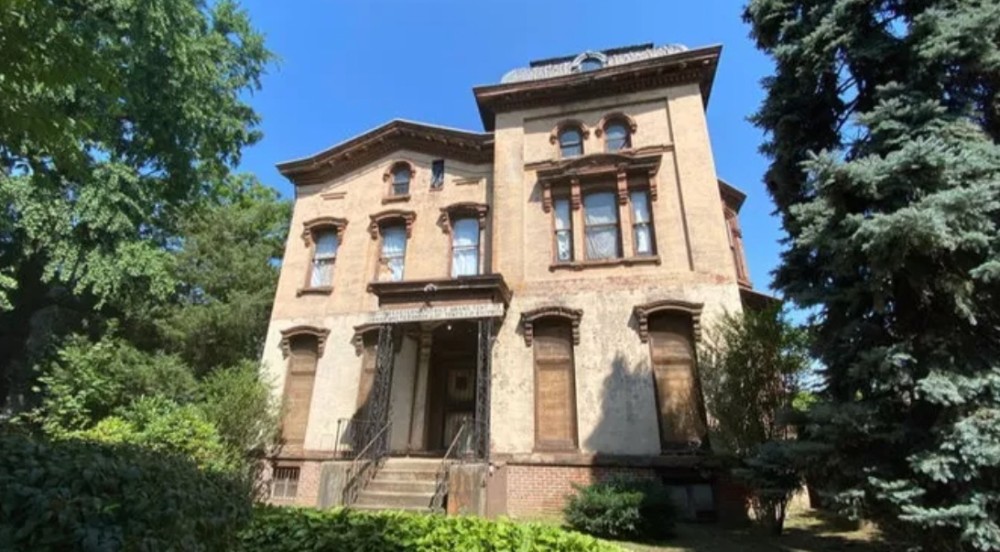The United Order of Tents, a secret society of Black women whose history goes back to the Underground Railroad, are fighting to save their headquarters located in the Bedford-Stuyvesant neighborhood of Brooklyn, reports the New York Times.
For the last 10 years, the Tents have been at the center of a battle for their property. Now with the possibility of a tax lien being levied on the organization, they are on the brink of losing the mansion.
The group’s current property tax bill is well over $400,000 and the historic mansion is in dire need of restoration due to boarded-up windows, crumbling plaster, and water damage.
“That building is a symbol of a legacy,” Akosua Levine, 71, a Brooklyn native and a longtime member of the Tents, said to the New York Times. “Women that were enslaved, freed slaves—they did with nothing. So in the 21st century, we have no excuse for that building, for that legacy, not to continue. We have to value our culture.”
Although the origins of the organzation date back to 1848, the group was officially organized in 1867 by two formerly enslaved women, Annetta M. Lane of Norfolk, Virginia, and Harriett R. Taylor of Hampton, Virginia. as a "Christian Fraternal Benevolent Organization." Their primary mission is “ to care for the aged, respectfully bury the dead and promote sisterhood.” Membership spans Georgia, North Carolina, the District of Columbia, Maryland and Virginia. Today, the Brooklyn group is the last remaining club in what was once the club's Eastern District, stretching from Massachusetts to Pennsylvania.
Membership had dwindled to just eight women but now the branch boasts 24 members with Tents as young as 25 years old in recent years.
Essie Gregory has been a member since 1997. She became intrigued after witnessing the Tents perform a secret ritual.
“I was curious,” she said to the New York Times, without divulging what took place at the ceremony. When she joined the group, she became one of the youngest women in the group at the time.
“They were doing all the good things that the Tents did, but they were not really inviting new members in," she added. "They didn’t put themselves out there.”
Purchased in 1945, the mansion has become a symbol of the Tent's rich heritage. In 2011, the Tents sold the back part of their large lot to a developer and used the proceeds to repair the building but ran into more problems. The contractor that was hired removed some original molding and paneling and several projects were never completed.
“I cried,” Levine recalled to the New York Times. “Because it’s like my heart. You’re hurting my heart.”
Because the building is protected by the Stuyvesant Heights Historic District, it will not be demolished over the tax dispute. But if the Tents are going to continue to occupy the building, the must find the fuss to maintain the building as its upkeep is very expensive.
According to Jacques David, a senior staff attorney at the Legal Aid Society, the Tent's exemption from local property taxes was denied by the Department of Finance when the building was not being used during the pandemic. The city agency believed that the building was vacant and "the Tents didn't prove that they would use the property for tax-exempt purposes in the foreseeable future."
David, who's represented the Tents since 2014, said to the New York Times, “We’ve been through quite a bit together. At each step, when I think that we’ve cleared the final hurdle, there’s another hurdle.”
Kelly Britt, an assistant professor of anthropology at Brooklyn College whose expertise is in historical archaeology, said that the mansion should be preserved because of the Tent’s history of Black women's service to their Brooklyn community.
“They need money,” Britt explained to the esteemed paper. “They need money to deal with the house. They need money to deal with the issues with the city and the taxes. And they need money to be able to do what they want to do to help the community.”
Erica Buddington, one of the newest members of the Tents, believes it’s a part of their group's mission to keep the legacy of 87 MacDonough alive. She noted to the New York Times how many Black areas in New York City “have been wiped from the map.”
"Brooklyn has many street signs and neighborhoods that are holding up the names of Dutch and English enslavers,” she continued. “Yet we cannot keep Black spaces intact. That is big for me. We need to remember some of those spaces.”
“There is a heavy imprint here of folks that migrated from the South, from the Caribbean, from Africa and established roots here for us,” she added. “And I really feel like when I walk into those spaces, they’re saying, stay. Stay.”
You can contribute to the fundraiser to same the Brooklyn headquarters of the United Order of the Tents at www.unitedorderofthetentseasterdistrict3.org.













